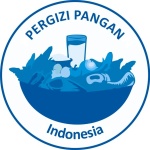TRANSFORMASI KEBIJAKAN PEMBANGUNAN PERTANIAN DI INDONESIA: STRATEGI MENUJU KETAHANAN PANGAN BERKELANJUTAN
Abstract
Agricultural policy transformation aims to increase productivity, sustainability, and farmers' welfare while meeting the demands of economic, social, and environmental developments. This will have an impact on national food security. Therefore, it is important to study how to empower small businesses in the food sector to be more productive and sustainable and how to promote food diversification based on local potential and local wisdom. This study aims to analyze the transformation of agricultural development policies in Indonesia and its impact on national food security. The type of research is qualitative with a literature review method. The results of the analysis show that sustainable food security can be achieved with the strategy of building food supply from domestic production and national food reserves, empowering small-scale businesses engaged in the food sector which is a dominant feature of the Indonesian agricultural economy, increasing the capacity of farmers through training and technical assistance, counseling related to crop diversification for business efficiency and accelerating technology dissemination, promoting food loss reduction through the utilization of food handling, processing and distribution technology, promoting food consumption diversification based on the potential of local food resources, regional food diversity, and local wisdom, improving the nutritional status of the community through enrichment or fortification of certain nutrients in foods consumed by most people, such as rice, cooking oil and salt, striving to create the ability to ensure that food distributed or traded to the public has safe, hygienic, quality, nutritious characteristics, and does not conflict with religion, beliefs and culture of the community, strengthening and facilitating the development of efficient food marketing and trade in rural areas, management of basic food reserves of central and local governments to maintain stability of food supply and prices, using international food trade policy instruments by prioritizing national interest considerations and in line with international agreements, revitalizing the community food barn institutional system into a community food reserve system managed with the principle of economic efficiency while still having a social function, providing subsidized food assistance in accordance with local food consumption patterns for the poor and food-insecure communities.

This work is licensed under a Creative Commons Attribution 4.0 International License.






